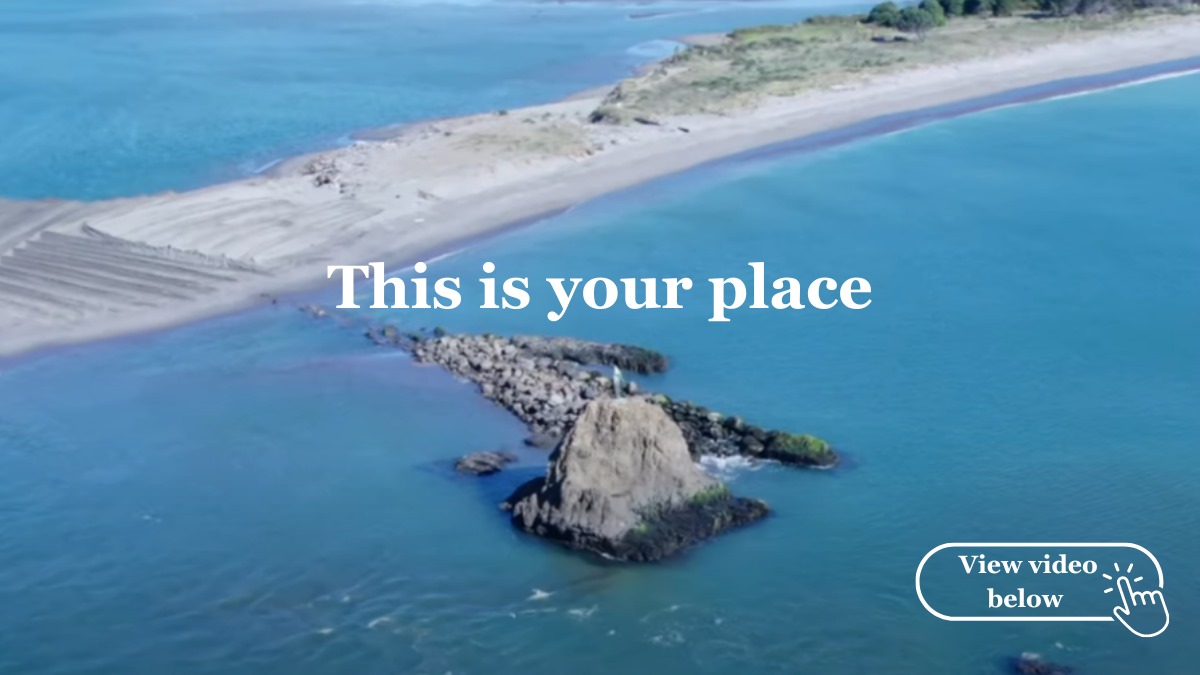Bachelor of Environmental Studies
Te Aho Pūtaiao: Bachelor of Environmental Studies
Make a difference, become a kaitiaki and protect our planet for future generations.
Are you passionate about the environment, sustainability, and the wellbeing of our whenua and waterways?
Become a future-focused environmental leader. Explore Te Aho Pūtaiao – the Bachelor of Environmental Studies (BES) at Te Whare Wānanga o Awanuiārangi. A unique degree encompassing science, mātauranga Māori and indigenous knowledge.
Study science perspectives along with the social, cultural, and economic outlooks on the environment, providing a holistic understanding of environmental systems, the impacts on our communities, and an endeavour for solutions. Become an eco-warrior!
Whatungarongaro he tangata, toitū te whenua: As man disappears from sight, the land remains.
Why Study the Bachelor of Environmental Studies – Te Aho Pūtaiao
Mātauranga Māori & Science
Understand the environment through a holistic lens. Integrating mātauranga Māori and indigenous knowledge with science.
Career-Ready Skills
Graduate with practical research, analytical and communication skills valued by employers.
Community Impact
Contribute and make a difference for your whānau, hapū, iwi, and community. Learn to address climate change, resource management, and sustainability from a kaupapa Māori perspective.
Interdisciplinary Approach
Study ecology, earth systems, data science, environmental studies, climate change and resilience, sustainability, resource management and more.
Supportive and Flexible Learning
Flexible delivery through online learning, self-directed study and in-person noho (onsite learning). With smaller class sizes and academic support.
- What you’ll learn in the Bachelor of Environmental Studies – Te Aho Pūtaiao
- Kaitiakitanga, indigenous environmental knowledge and Māori, iwi and hapū relationships with the environment
- Resource management and sustainability
- Environmental systems and climate change
- Conservation, biodiversity, ecosystems and restoration
- Environmental ethics and research methods
- Who should apply?
- Advocates passionate about the environment, climate justice, and indigenous rights
- Those who want to integrate indigenous perspectives into environmental solutions
- School leavers passionate about nature and wanting to make a difference
- Career changers seeking meaningful work with the environment
- Future scientists, planners, and policymakers
Dates
02 Feb to 06 Nov 2026Duration
3 years full-time study, 40 weeks per year (you must re-enrol each year)Commitment
Blended learning including noho, wānanga, zoom tutorials, online learning and self-directed learningApplications close
16 Feb 2026Locations
Online and Whakatāne nohoRequirements
Select link belowPathway to
Select link belowFees
2026 Fees: $7240.00 (tuition) $375.00 (course related costs) $7615.00 (total), (note fees are updated annually)YEAR 1 COURSES
TAI571 Whānau, Hapū, Iwi - Relationships
Course type: Core
- Description: This kōwae ako provides an introduction to the current management, stewardship and issues relevant to whānau, hapū and iwi within their environments.
TAI572 Whenua – Introduction
Course type: Core
- Description: This kōwae ako provides an introduction to the importance of whenua within mātauranga Māori contexts by understanding current environmental issues, land use, and the health of the whenua that impact on whānau, hapū, and iwi.
TAI573 Kaitiakitanga - Principles
Course type: Core
- Description: This kōwae ako introduces principles and concepts of environmental identification, stewardship, and protection within a mātauranga Māori worldview and within the context of specific whānau, hapū, and iwi.
TAI574 Ecology - Introduction
Course type: Core
- Description: This kōwae ako provides an introduction to ecology by understanding physical and biological properties within a local environment.
TAI575 Rangahau – Principles
Course type: Core
- Description: This kōwae ako introduces research and rangahau requirements within a degree and outlines what is research within a mātauranga Māori context and why research is important. The kōwae ako provides an overview of methods, methodologies, qualitative and quantitative data, report writing and ethics when engaging with whānau, hapū, and iwi.
TAI576 Wai – Introduction
Course type: Core
- Description: This kōwae ako provides an introduction to the importance of water within mātauranga Māori contexts by understanding the water cycle and analysing the use and quality of water locally.
TAI577 Climate Change – Introduction
Course type: Core
- Description: This kōwae ako provides an introduction to climate change concepts, and a broad understanding of climate change terms including human activity effects on the environment.
TAI578 Environmental Sustainability & Technology – Concepts
Course type: Core
- Description: This kōwae ako introduces environmental sustainability concepts and the role of technology in providing sustainable options. The kōwae ako also introduces tauira to the impact of everyday processes on the environment.
YEAR 2 COURSES
TAI671 Whānau, Hapū, Iwi – Environments
Course type: Core
- Description: This kōwae ako increases tauira understanding and application of legislation, local compliance relevant to their whānau, hapū and iwi. The kōwae ako also provides an understanding of natural capital concepts.
TAI672 Whenua - Impacts
Course type: Core
- Description: This kōwae ako examines the importance of whenua within mātauranga Māori contexts by understanding land use within whānau, hapū, and iwi. Tauira are also required to identify environmental issues and generate possible solutions.
TAI673 Kaitiakitanga – Practices
Course type: Core
- Description: This kōwae ako furthers discussion on kaitiakitanga in practise, by further understanding legislation which impacts on kaitiakitanga and opportunities to evaluate and apply practices of kaitiakitanga within a local context.
TAI674 Ecology - Principles
Course type: Core
- Description: This kōwae ako covers the principles of ecology, including adaptation to environment, species interactions, population dynamics and biogeography.
TAI675 Rangahau – Collection and Analysis
Course type: Core
- Description: This kōwae ako requires tauira to practically apply research concepts to design questions for surveys and interviews, and to evaluate responses.
TAI676 Wai – Components
Course type: Core
- Description: This kōwae ako provides opportunities for tauira to practically apply theory-based concepts in Year One, through the sampling and monitoring of species. The kōwae ako also increases tauira understanding of water use and requirements locally.
TAI677 Climate Change – Societal and Scientific Impacts
Course type: Core
- Description: This kōwae ako gives tauira opportunities to distinguish societal and scientific impacts of climate change, and validate possible quality controls, signs, and indicators of climate change.
TAI678 Environmental Sustainability & Technology – Solutions
Course type: Core
- Description: This kōwae ako requires tauira to demonstrate their ability to think critically when dealing with various pieces of information and provide sustainable solutions that are fit for purpose. The kōwae ako also gives tauira the opportunity to review new types of technology on a global scale.
YEAR 3 COURSES
TAI771 Whānau, Hapū, Iwi - Environmental Sustainability
Course type: Core
- Description: This kōwae ako challenges tauira to synthesise information from various information and approaches to create and propose a solution for a complex local environmental situation or problem.
TAI772 Whenua – Management
Course type: Core
- Description: Mitigating risk and solving complex situations are included in this kōwae ako, within the context of whānau, hapū and/or iwi land as an essential resource for their future.
TAI773 Kaitiakitanga – Environmental Leadership
Course type: Core
- Description: This kōwae ako requires tauira to demonstrate environmental leadership by identifying, applying, and reviewing Kaitiakitanga concepts to solve wide scale issues within their whānau, hapū and iwi.
TAI774 Ecology – Major Eco-Systems
Course type: Core
- Description: This kōwae ako looks at the origins and application of mātauranga Māori in the marine and terrestrial environments, the functions of major marine and terrestrial ecosystems and investigates the human impacts on marine and terrestrial species and ecosystems effects.
TAI775 Rangahau – Synthesis
Course type: Core
- Description: Tauira are required to implement practices and processes of research within this kōwae ako, ensuring research is applied appropriately and is evidence driven.
TAI776 Wai – Management
Course type: Core
- Description: Mitigating risk and solving complex situations are included in this kōwae ako. Tauira will demonstrate their ability to provide solutions within the context of whānau, hapū and/or iwi waterways as an essential resource for their future.
TAI777 Climate Change – Mitigation
Course type: Core
- Description: This kōwae ako investigates human displacement and infectious diseases. The kōwae ako also investigates species adaptation, pest movement and management as a result of climate change. Tauira will also identify the effects of pH levels in the ocean and the potential global impact of ocean acidification.
TAI778 Environmental Portfolio of Works
Course type: Core
- Description: As an essential element of project-based learning, this kōwae ako requires tauira to complete a portfolio of works that outlines their ability to provide solutions to complex situations and draw evidence-based conclusions that are meaningful to their whānau, hapū, and/or iwi
Whakapā mai/Contact us
Violet Walker
- Phone: 027 248 3452
- Email: violet.walker@wananga.ac.nz
Interested? Make an enquiry
We will email you an info pack

